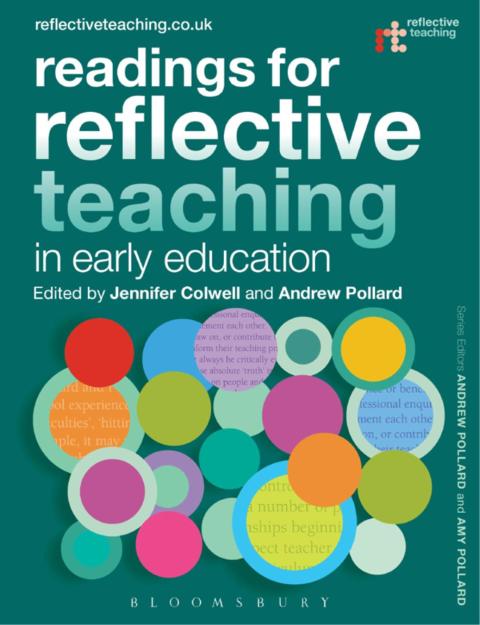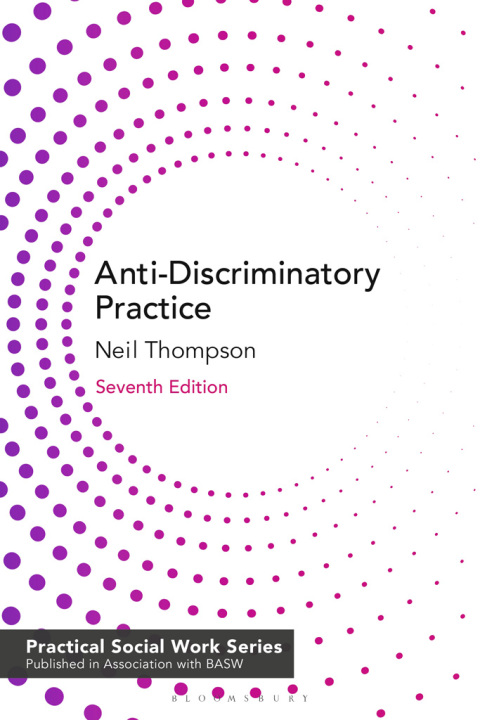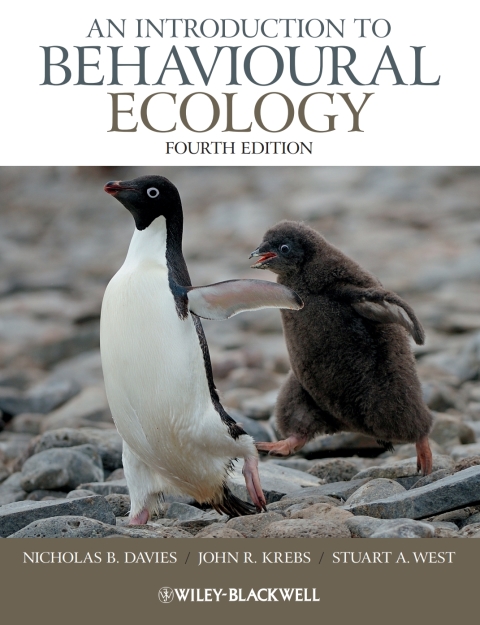Description
Efnisyfirlit
- FC
- Half Title
- Title Page
- Dedication
- Toc
- Acknowledgements
- A note on citation
- Introduction
- Part one: Becoming a reflective professional
- 1. Identity Who are we, and what do we stand for?
- 1.1 Janet Moyles Passion, paradox and professionalism in early years education
- 1.2 Avril Brock Perspectives on professionalism
- 1.3 Lisa Spencer-Woodley Accountability: Tensions and challenges for the early years workforce
- 1.4 Ruth Heilbron Practical judgement and evidence-informed practice
- 1.5 Peter Moss Questioning the story of quality
- 1.6 Sandra Mathers, Rosanna Singler and Arjette Karemaker Improving quality in the early years: A comparison of perspectives and measures
- 2. Learning How can we understand learner development?
- 2.1 Burrhus Skinner The science of learning and the art of teaching
- 2.2 Jean Piaget The genetic approach to the psychology of thought
- 2.3 Lev Vygotsky Mind in society and the ZPD
- 2.4 Jerome Bruner The spiral curriculum
- 2.5 Carol Dweck Motivational processes affecting learning
- 3. Reflection How can we develop the quality of our practice?
- 3.1 Jan Peeters and Michel Vandenbroeck The role of reflection in the professionalization of the early years workforce
- 3.2 Lawrence Stenhouse The importance of practitioner research
- 3.3 Richard Pring Action research and the development of practice
- 3.4 Denise Kingston and Jane Melvin Measures of quality
- 3.5 Donald Schön Reflection-in-action
- 3.6 John Dewey Thinking and reflective experience
- 3.7 Pete Watton, Jane Collings and Jenny Moon Reflective writing
- 4. Principles What are the foundations of effective teaching and learning?
- 4.1 Mandy Swann, Alison Peacock, Susan Hart and Mary Jane Drummond Learning without limits
- 4.2 Kathy Sylva, Edward Melhuish, Pam Sammons. Iram Siraj-Blatchford and Brenda Taggart The Effective Provision of Pre-school Education (EPPE) project: Findings from pre-school to end of Key Stage 1
- 4.3 The Royal Society Insights, opportunities and challenges of educational neuroscience
- 4.4 Rod Parker-Rees Playful learning
- 4.5 Cathy Nutbrown Schemas and learning
- Part two: Creating conditions for learning
- 5. Contexts What is and what might be?
- 5.1 Qing Gu Being an educator in times of change
- 5.2 C. Wright Mills The sociological imagination
- 5.3 David Whitebread and Sue Bingham Exploring the school readiness debate
- 5.4 Andy Green and Jan Janmaat Education, opportunity and social cohesion
- 5.5 Stephen Ball Schooling, social class and privilege
- 6. Relationships How are we getting on together?
- 6.1 Maria Evangelou, Kathy Sylva, Maria Kyriacou, Mary Wild and Georgina Glenny Early years learning and development literature review
- 6.2 Carolynn Rankin and Fiona Butler Working in teams
- 6.3 Denis Lawrence What is self-esteem?
- 6.4 Sir Richard Bowlby Attachment, what it is, why it is important?
- 6.5 Jennifer Colwell The role of the preschool practitioner in the development of children’s social competencies
- 7. Engagement How are we managing behaviour?
- 7.1 Ferre Laevers Measuring involvement in the early years
- 7.2 Pat Broadhead, Jane Johnston, Caroline Tobbell and Richard Woolley Understanding children’s behaviour in relation to their development
- 7.3 Sonja Sheridan Pedagogic quality and behaviour
- 7.4 Michael Argyle Non-verbal communication
- 7.5 Michelle Graves and Ann Arbor The HighScope approach to behaviour management
- 8. Spaces How are we creating environments for learning?
- 8.1 Janet Moyles, Siân Adams and Alison Musgrove The learning environment
- 8.2 Marie Willoughby The value of providing for risky play in early childhood settings
- 8.3 Tim Loreman Respectful environments for children
- 8.4 Urie Bronfenbrenner The ‘ecology’ of social environments
- 8.5 Tim Waller Digital technology and play
- Part three: Teaching for learning
- 9. Curriculum What is to be taught and learned?
- 9.1 Tina Bruce, Anne Findlay, Jane Read and Mary Scarborough Froebel’s spirit and influence
- 9.2 Sheila Nutkins, Catriona McDonald and Mary Stephen The Reggio Emilia approach
- 9.3 Marion O’Donnell The Montessori approach
- 9.4 Heiner Ullrich Rudolf Steiner and the Waldorf Pre-School
- 9.5 Sheila Nutkins, Catriona McDonald and Mary Stephen HighScope
- 9.6 Wendy Lee, Margaret Carr, Brenda Soutar and Linda Mitchell The Te Whāriki approach
- 10. Planning How are we implementing the curriculum?
- 10.1 Lilan G. Katz A developmental approach to the curriculum in the early years
- 10.2 Peter Moss Listening to young children
- 10.3 Phil Jones Assumptions about children and young people
- 10.4 Kathy Brodie Curriculum planning
- 10.5 Trisha Lee The wisdom of Vivian Paley
- 11. Pedagogy How can we develop effective strategies?
- 11.1 The General Teaching Council for England What is pedagogy and why is it important?
- 11.2 Iram Siraj-Blatchford, Kathy Sylva, Stella Muttock, Rose Gilden and Danny Bell Pedagogy in effective settings
- 11.3 Jerome Bruner Folk pedagogy
- 11.4 Roland Tharp and Ronald Gallimore Teaching as the assistance of performance
- 12. Communication How does language support learning?
- 12.1 Pat Broadhead Interactions and social development
- 12.2 Julia Manning-Morton Talking babies
- 12.3 Belinda Buckley The role of the linguistic environment in early language development
- 12.4 Tözün Issa and Alison Hatt The bilingual learner
- 12.5 Colin Harrison Why is reading so important?
- 12.6 Sandra Smidt Narrative in the lives of children
- 13. Assessment How can assessment enhance learning?
- 13.1 Margy Whalley Creating a dialogue with parents
- 13.2 Patricia Broadfoot Assessment: Why, who, when, what and how?
- 13.3 Andrew Burrell and Sara Bubb Teacher feedback in the reception class
- 13.4 Scottish Government Reporting on progress and achievement
- 13.5 Andrew Pollard and Ann Filer The myth of objective assessment
- 13.6 Cathy Nutbrown Watching and listening: The tools of assessment
- Part four: Reflecting on consequences
- 14. Outcomes How do we capture learning and achievements?
- 14.1 Guy Claxton Learning and the development of resilience
- 14.2 Jenny Willan Observing children
- 14.3 Margaret Carr and Guy Claxton Learning dispositions and assessment
- 14.4 Anette Emilson and Ingrid Pramling Samuelsson Observation and pedagogic documentation
- 14.5 Jonathan Glazzard Involving parents and carers as partners in assessment
- 15. Inclusion How are we enabling opportunities?
- 15.1 Anastasia Liasidou Defining inclusion
- 15.2 Penny Borkett Supporting children with Special Educational Needs in the early years
- 15.3 Gary Thomas and Andrew Loxley Difference or deviance?
- 15.4 Jonathan Rix What’s your attitude? Inclusion and early years settings
- Part five: Deepening understanding
- 16. Expertise Conceptual tools for career-long fascination
- 16.1 Pat Collarbone Contemporary change and professional development
- 16.2 Tony Eaude The development of teacher expertise
- 16.3 Marilyn Osborn, Elizabeth McNess, Andrew Pollard, Pat Triggs and Patricia Broadfoot Creative mediation and professional judgement
- 16.4 Iiris Happo and Kaarina Määttä The expertise of early childhood educators
- 17. Professionalism How does reflective teaching contribute to society?
- 17.1 Cathy Nutbrown Qualifications: The Nutbrown Review
- 17.2 Margaret Archer Thinking about educational systems
- 17.3 Frank Field The Field report: Preventing poor children becoming poor adults
- 17.4 Jones Irwin The philosophy of Paulo Freire
- 17.5 Tony Bertram and Chris Pascal The impact of early education as a strategy in countering socio-economic disadvantage
- List of figures
- Bibliography
- Permissions
- Index
- The Reflective Teaching Series
- Copyright Page







Reviews
There are no reviews yet.